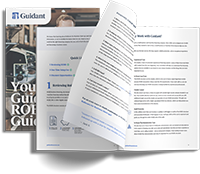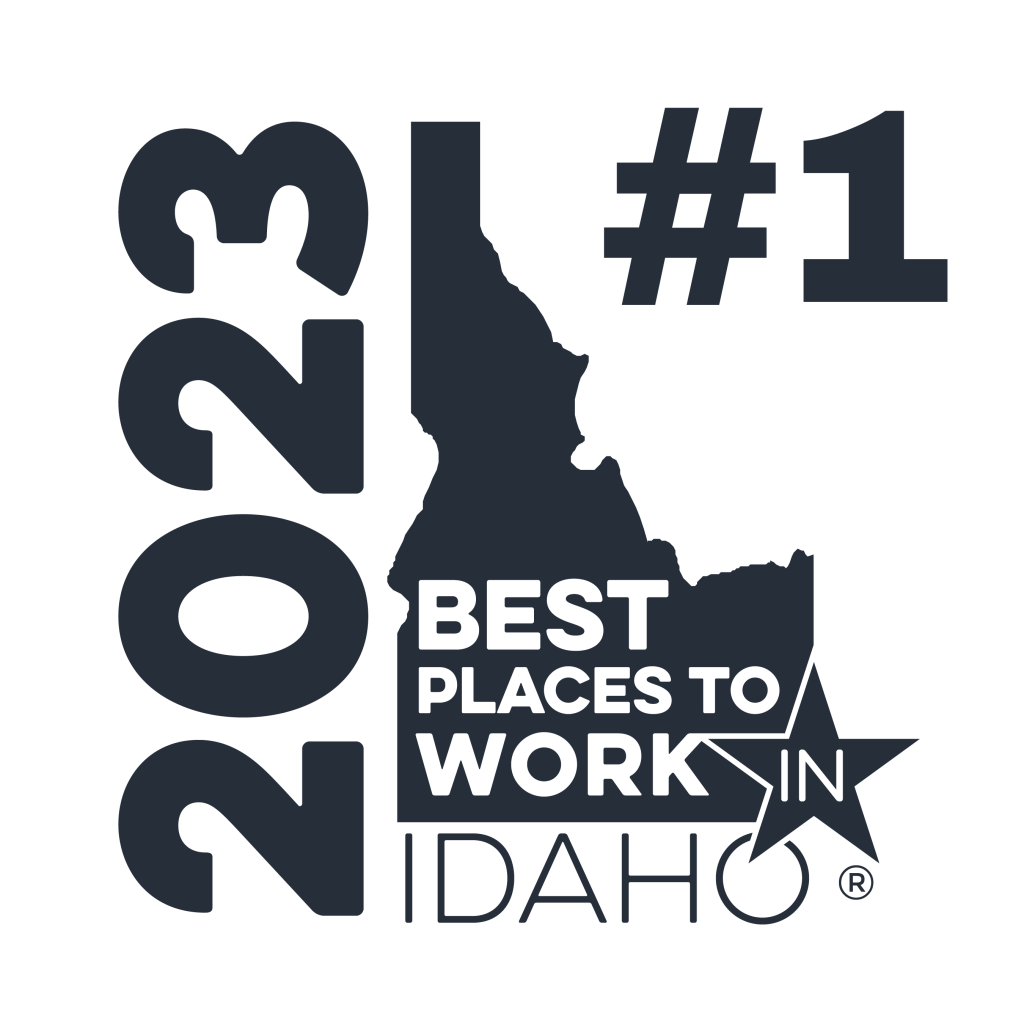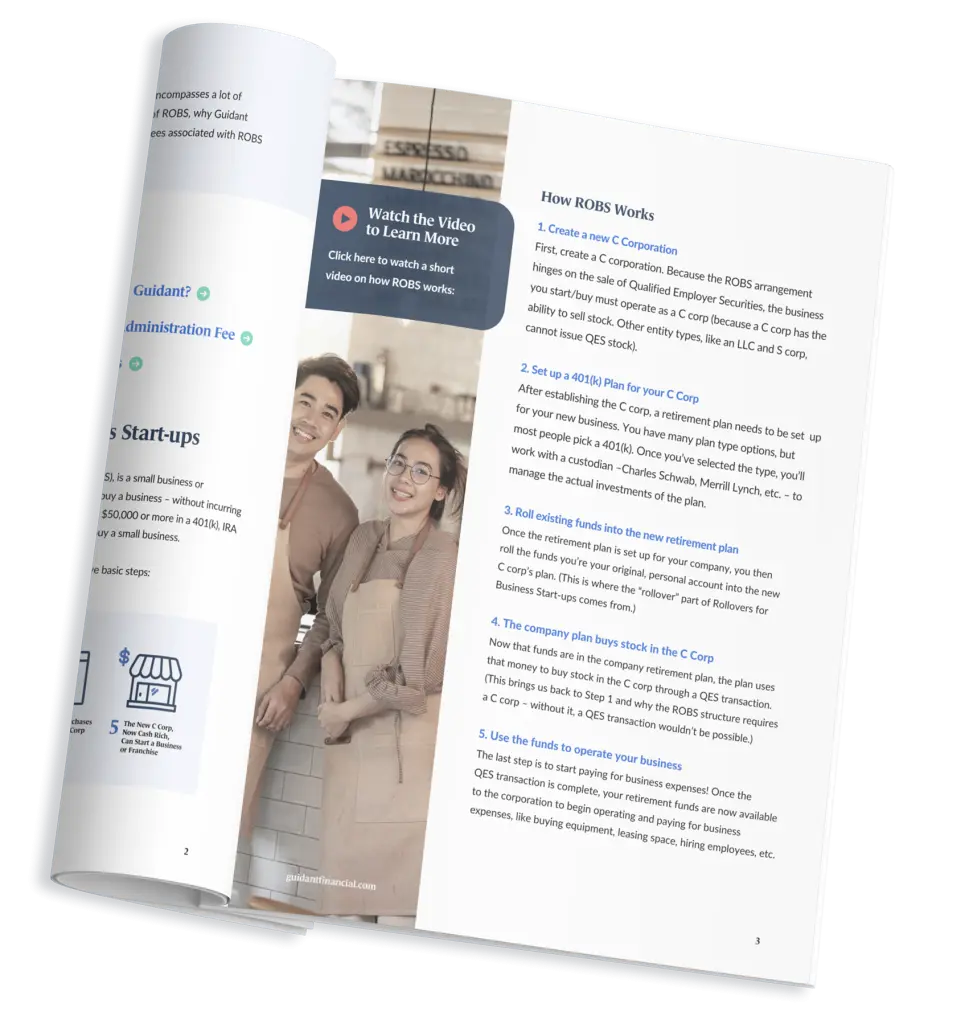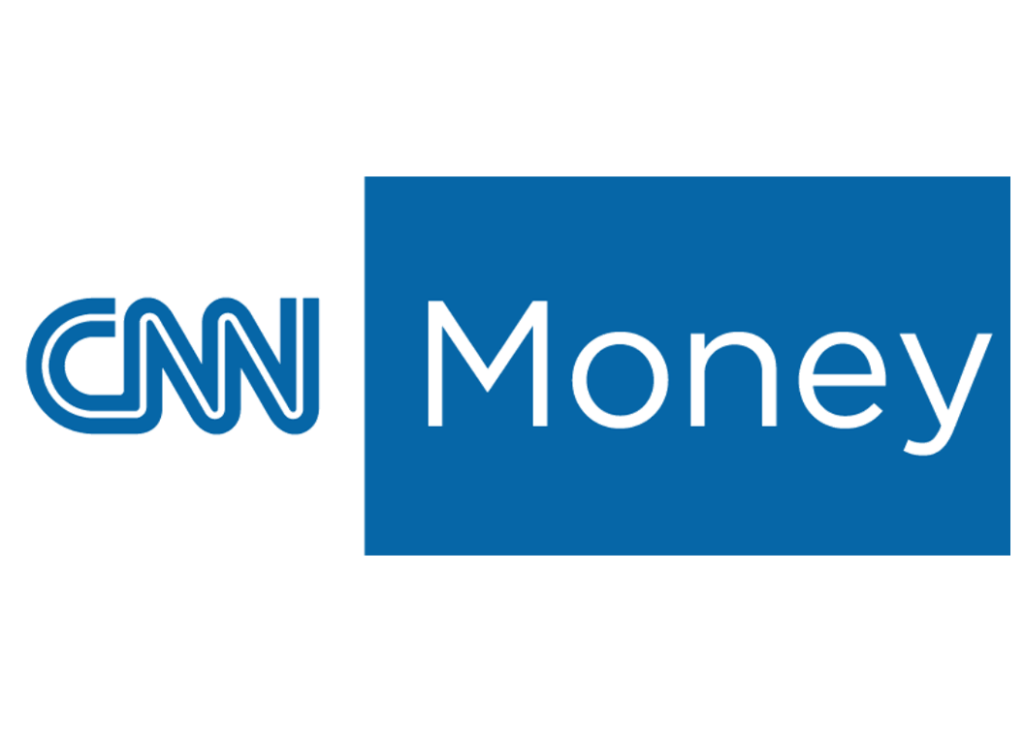One of the exciting things about becoming your own boss is making all the big decisions. That said, one of the most stressful things about becoming your own boss is — you guessed it! — making all the big decisions. Regardless of the type of business, one of these decisions is how you want to get into business in the first place. Whether it’s starting from scratch or buying an existing business, there’s no right or wrong answer, only what’s right or wrong for you. Instead of asking yourself if buying a business is a good idea or launching a startup is too challenging, start by looking at the advantages and disadvantages of each.
Buying a Business vs. Starting a Business from Scratch

Buying a Business
Advantages of Buying a Business
If you’ve ever walked into one of your favorite businesses and thought about the things you would do differently (such as how you could improve operations, delight more customers, maybe even update the décor), then buying an existing business might be for you. And fortunately, there are plenty of advantages to buying an existing business.
- Clear upfront costs. If the person selling their business has properly valued their business, you should have a clear view of the business price and why. This is obviously helpful when it comes to budgeting for your small business project. You’ll have an easier time estimating your total capital need compared to someone who’s starting from scratch.
- Save some time. If you buy an existing business, you’re bound to save some time in the early stages of business ownership. Crucial tasks such as looking for real estate, hiring employees, and researching equipment can take a lot of time. Fortunately, in this case, most of those early decisions have already been made. You’ll surely make some changes along the way, but you’ll have a solid foundation to hit the ground running.
- An established reputation. Typically, a business’s established reputation works in your favor. Even if it’s not a spotless reputation, you can still leverage name and brand recognition to generate excitement about new ownership. It can take months to years to build an established audience when starting a new business, so this is a huge advantage.
Disadvantages of Buying a Business
While buying an existing business is a fast way to find success as an entrepreneur, it does come with its own set of challenges. Consider the disadvantages of buying an existing business before making the decision:
- Due diligence. Purchasing an existing business is a big investment and one that can have a great return. However, you need as much information as possible about what you’re buying before you pull the trigger. This means contributing a lot of time and attention to reviewing a business’s history, finances, etc. before you sign. You should consider hiring an attorney and a CPA to help you review the available information and ensure you understand what you’re committing to.
- Change management. Experienced staff can serve as a huge help to you as the new owner of an existing business, but change is never easy. You’ll need to pay special attention to managing seasoned staff and seeing that the transition is a smooth one.
Starting a Business from Scratch
Advantages of Starting a Business from Scratch
If there’s a passion you want to pursue, starting a business can be one of the most rewarding ways to become a business owner. Obviously, no one will tell you launching a brand-new business is easy, but there are a lot of advantages:
- Creative freedom. Compared to other business ownership avenues, launching a new start-up business will give you the most flexibility and creative freedom. From product and service to company culture, you’ll have the ultimate say in how you shape your company when starting a new business.
- Flexible budget. Starting a business is rarely a low-budget adventure. However, starting a new business gives you the control to ultimately determine your budget. If you need to cut costs, you can make decisions such as remaining your only employee, setting up a home office, etc.
- Flexible schedule. How the new business will fit into your lifestyle? If you need to keep working your day job, starting your own business as a side hustle may be the way to go. More often, buying a business will require more time and attention from the start.
Disadvantages of Starting a Business from Scratch
Starting a new business is one of the most exciting challenges you’ll ever pursue. Keep these considerations in mind:
- A lot to learn quickly. If this is your first business, you’ll need to take the ‘drinking from a fire hose’ approach if you’re starting from scratch. There are a number of resources available for launching startups, but it takes a lot of time and energy to absorb the information you’ll need to be successful.
- Responsibility. No matter which avenue you take to become a business owner, you will have a lot of new responsibilities. But starting a new business means making every single decision… all of which will impact the success of your company. Some people love this challenge, but some see it as a disadvantage of startups.
- Managing expenses. Often, managing the ongoing and unforeseen expenses of a new business is more challenging than when purchasing an existing business. The due diligence and financial review available during the existing business purchasing process is not available as you launch a start-up. You need to carefully budget for unexpected costs keeping in mind that it often takes years before start-up owners can draw a salary.
When you’re debating what kind of business ownership is right for you, try not to dwell on whether buying or launching is the better idea. The truth is there are advantages and disadvantages to each. The key to success is determining which choice is right for you, your leadership style, your budget, and your lifestyle. There’s no wrong or right way to become an entrepreneur if you know what you want.
How to Buy a Small Business

So you’ve decided that buying a small business is for you! Here are the seven main steps you’ll need to go through to purchase a business successfully:
- Decide on business criteria
- Find a business for sale
- Assess the business environment
- Perform due diligence
- Value the business
- Secure funding
- Complete the purchase
Buying an existing small business can be a great way to get into small business ownership. If the business already has a proven track record of success, you can build on that success. If the business needs some updating or expansion, you can develop it further and put it on a solid footing. Buying a small business that’s already operating can eliminate a lot of challenges that plague startups.
Business advisors call existing companies “turnkey” businesses, because the products, services, and physical assets are already in place. All that’s required is to open the business under new management and to continue the same level of quality and service. Franchises, where everything from building specifications to product manufacture can be determined by the franchisor, are examples of turnkey businesses.
But settling on the business you want to buy isn’t even the first step.
1. Decide on Business Criteria
Before setting your sights on one particular business, take the time to write down what you’re looking for in a business.
- What industry do you want to be in?
- What sort of location? What size?
- What kind of business model?
- What kind of business will fit your lifestyle?
- How do you plan to finance the purchase? Are there any business types your financing is incompatible with?
This will turn what can be an overwhelming task into a much more manageable one. You can even communicate all of these preferences to a business broker, some of whom will be happy to help you look for the the perfect business.
2. Find a Business for Sale that’s Right for You
Connect with a business broker, online marketplace, or current business owners to find a business for sale that’s right for you. At this stage, don’t stop looking when you’ve found one that fits your requirements. You’ll want to make a list of two or three, and narrow them down by doing a shallow level of due diligence. Review the details of 2-3 businesses for sale that you’re interested in. You should only dive deeper once you’ve narrowed things down.
3. Assess the Business Environment
Once you’ve determined the business you want to buy, assess the business environment. What factors make the existing business or franchise successful? Can you easily replicate those factors? As part of your assessment, you also want to predict any bumps in the road, and have a clear vision of how to avoid them.
For example, viable businesses need a strong customer base and a product that people want to buy. But you need to think through the possible factors that can affect a customer base, demand, and other aspects of your business. What is your competition like? Does your research imply that competition could be growing or shrinking in the future? Competition could be growing if new, similar businesses are coming into your region. Competition could be shrinking if you live in an area where physical, brick-and-mortar establishments are closing up. These are just two reasons that could affect
Analyze the competitive picture. Have plans to deal with both the current environment and challenges on the horizon.
4. Perform Due Diligence
Next, it’s time to perform due diligence. “Due diligence” is a thorough examination of an individual business or franchise. It’s often performed in conjunction with an accountant, lawyers, and other consultants. Due diligence is a crucial part of buying a business. It often provides the grounds to establish the valuation and the purchase price, and ensures you’re buying a profitable business. Because of this, a due diligence process needs to take place before a formal purchase agreement is signed.
Preparing for Due Diligence
It is highly recommended that you perform due diligence with an accountant, lawyer, and other consultants. You’ll need to acquire most of the necessary documents from the current owner or business broker. To do so, you’ll likely need to sign a confidentiality agreement or nondisclosure agreement. Try to get access to all financial records, including a cash flow statement, income statement, and balance sheet. You’ll also want to get access to nonfinancial documents, including the business plan, facilities lists, customer lists, and more.
Review all Financial Records and Documents
You and your advisors should analyze balance sheets and income statements for at least the past three years. Verify profitability, cash flow statements, and all other financial data. Look at the projected financial statements and ensure that they’re reasonable. Verify the owner’s income regarding business profits. Check that all tax documents, including a yearly tax return, have been filed regularly and that all taxes are paid.
Review any factors that might result in liability for your new company, such as contracts or ongoing agreements. Is the business in compliance with zoning and other regulations? Check if the business has any liens on assets. Verify that there are no current or potential lawsuits and any recent litigation.
Make sure you have a grasp on the complete history of the business, including their Articles of Incorporation, the last five years of operating agreements, and any intangible assets such as registered trademarks, copyrights, patents, etc.
Review the business operations
Explore the facilities and any property. They need to conform to the specifications and conditions, as reported in the sales documents. If you’re purchasing a franchise, you need to conform to the franchisor’s requirements. Will you need to upgrade or expand? That needs to be factored into the sales price. Spend time at the business location, talking to managers and employees. Check sales against customer lists to verify that the business does indeed have the customers it says it does.
Review Marketing and Competitive Documents
This includes documents such as business plans, or plans covering the business model in detail. Assess the business’s mission statement and short- and long-term goals. Has a review of company strengths, weaknesses, opportunities, and weaknesses (SWOT) been done? A SWOT can be invaluable as a blueprint for your business going forward.
Finally, will you be keeping key employees? Do a competitive analysis of their salaries and benefits. Work with your consultants to make sure your due diligence is thorough.
Part of due diligence often involves building a business plan. Here’s How to Write a Business Plan That Will Get Approved for a Loan.
5. Value the Business
It’s extremely important to value the business accurately and appropriately so that you are paying a reasonable price. An inaccurate valuation can mean that you pay more than the business is worth. It can also mean that other aspects of the business based on valuations, such as insurance coverage, will be inaccurate.
Business owners should ask for a range of valuations. Why? Because valuations determined by assessing multiple factors will provide a more accurate picture of what a business is worth.
For example, three widely accepted approaches to valuing a business are Income, Asset, and Market. They each take a different approach to determining value. An asset approach, for instance, uses the company’s balance sheet to calculate the value of assets and then subtracts the value of the liabilities. A Market approach, on the other hand, provides a valuation by comparing similar businesses.
Arrive at the Purchase Price
Once the valuation is completed, you’ll be able to arrive at the purchase price. Be prepared to negotiate with the seller given the results of the due diligence process and the valuation.
If you are purchasing a franchise, be sure to factor in franchise costs into the purchase price. Most franchisors provide a detailed breakdown of requirements and associated costs.
Decide a Transition Structure
There are two main ways of purchasing a company: purchasing their assets, or purchasing stock.
If the company you are buying is a limited liability company (LLC), sole proprietorship, or partnership, your choice is made for you. Because these companies do not have stock, there is nothing to purchase. You will have to purchase the business by purchasing their assets.
Asset purchases also avoid having to negotiate with minority shareholders that may be unwilling to part with their stock.
The advantage of a stock transaction is convenience: by purchasing through a stock sale, you don’t have to have your new company’s assets re-titled in your name. You also don’t need the consent of the other party to obtain the company’s non-assignable contracts, permits, and licenses. As a majority shareholder, you are entitled to them.
6. Secure Funding
Once you’ve valued the company or franchise appropriately, you’ll likely need to find financing. There are many financing options, one of which will certainly work for you. That said, financing can be challenging. That’s one of the reasons that one-third of current and aspiring business owners surveyed in 2019 Small Business Trends named lack of capital and cash flow as their biggest concern. While loans may seem the obvious route, you also need to ensure that ongoing loan payments don’t limit your company’s ongoing cash flow, and ultimately become your demise.
Forms of Small Business Financing
- ROBS (Rollovers for Business Start-ups)
ROBS (also known as 401k Business Financing) is a method of using your eligible retirement funds, such as 401(k)s or traditional IRAs, to purchase a business. ROBS lets you leverage your existing funds, which eliminates the potential drawbacks of a loan – such as starting a business with debt that will tie up some of your business’s cash flow in loan payments. - SBA Loan
Business owners can apply for bank loans of up to $5 million guaranteed by the U.S. Small Business Administration (SBA). The SBA guarantees from 75 percent to 85 percent of the loan in the event of a default. SBA loans offer attractive interest rates and other terms. SBA loans are flexible and can be used for ongoing capital needs as well as real estate or expansion. - ROBS as a Loan Down Payment
Approval for both traditional small business loans and SBA loans can be difficult to get. Only about 25% of SBA loan applicants are approved, for example. A bank’s financial requirements for a traditional small business loan can be difficult to meet, as requiring a 20% to 30% cash down payment is fairly common. Using the ROBS method to access the money for a down payment can make approval more likely and reduce the amount of debt that needs to be paid off. - Unsecured Loan
An unsecured loan can offer up to $150,000 of financing can be offered without the collateral requirements required for conventional business loans. Often, banks considering traditional small business loans want to see a high percentage of collateral, in assets or property. But an unsecured loan focuses on the business owner’s creditworthiness rather than collateral. A minimum credit score of 690 is required, along with a credit utilization score of under 50 percent and minimal credit inquiries. - Portfolio Loan
If you have a portfolio of stocks, bonds, mutual funds, or other eligible securities, you can borrow against as much as 80% of the portfolio’s value. The advantages are that you don’t have to sell your portfolio; portfolio loans operate something like a revolving line of credit, in which you pay back what you’ve accessed at a low-interest rate. - Seller Financing
Seller financing allows you to purchase the business directly from the previous owner. The previous owner essentially acts as a bank, allowing the buyer to take a loan that covers a chunk of the total purchase price of the business. The buyer can then pay the purchase price over a period of time.
Valuing a business and obtaining funding can be challenging parts of business acquisition. Guidant Financial is here to help with both. Our business valuation solutions provide the valuations you need to understand the value of a business and a dedicated valuation specialist to guide you through the process. Our financing experts are also here to you understand the forms of funding available to you – funding that lets you purchase a business that is cash-rich and debt-free or that maximizes cash flow and keeps debt low.
Explore the top funding options for your small business in 7 Best Options for Small Business Funding.
7. Complete the Purchase
Once you’ve secured funding and are ready to move forward with the business purchase, draft a sales agreement with the help from your attorney, CPA, and business broker. Ensure all the business’s essential assets are included. If the seller has no revisions to the document, finalize the sales agreement. Work with your advisors to prepare a purchase price adjustment, if necessary.
Congratulations! You are now the owner of a shiny new-to-you business! If you run into any issues building your business, check out all of Guidant’s resources in our Learning Center.
Call us today at 425-289-3200 for a free, no-pressure business consultation to get started — or pre-qualify in minutes for business financing now!

“When Falling Sky Brewing presented itself as a great opportunity for me, I needed the capital. Traditional lenders weren’t going to do it. I took a chance on myself that I could grow my business and my 401(k)… And I thought, ‘You know what? I could do this without overhanging debt.‘”
— Stephen Such, Falling Sky Brewing
Read the stories of REAL small business owners who work with Guidant.


















